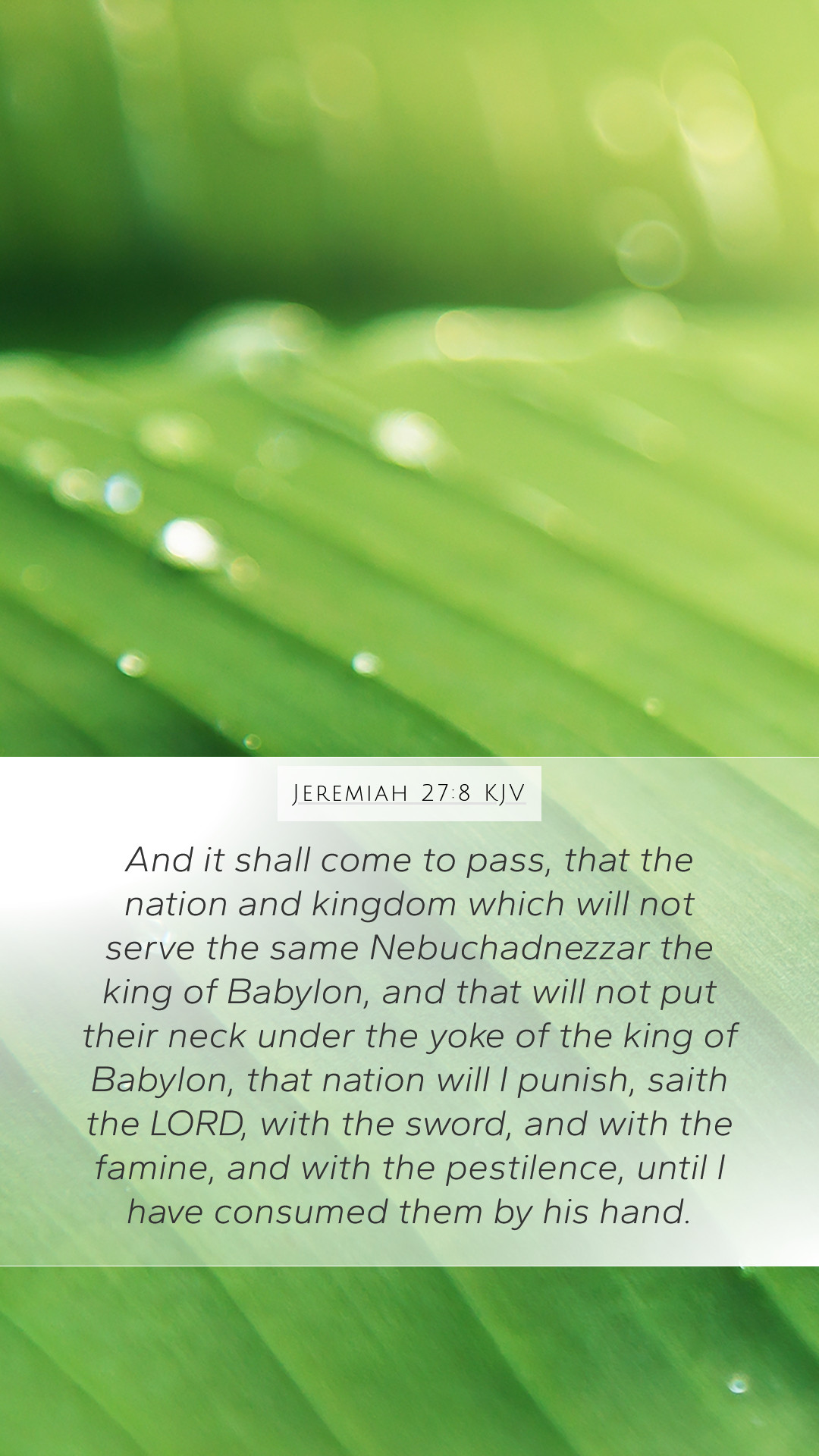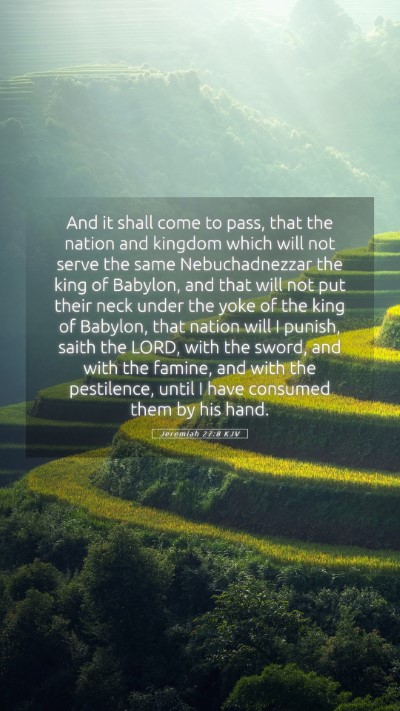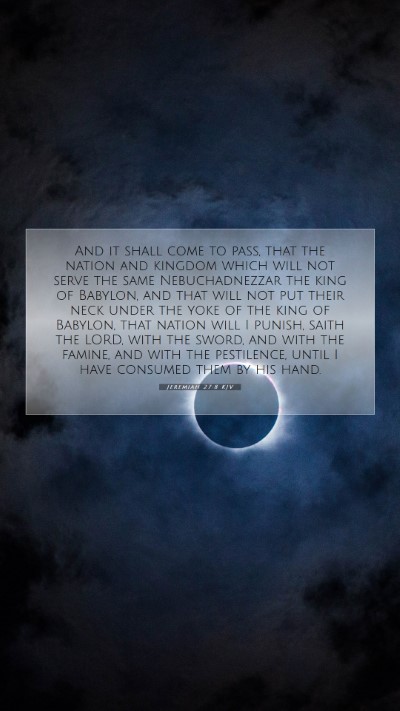Understanding Jeremiah 27:8 - A Bible Verse Commentary
Jeremiah 27:8 states: “And it shall come to pass that the nation and kingdom which will not serve the same Nebuchadnezzar king of Babylon, and that will not put their neck under the yoke of the king of Babylon, that nation will I punish, saith the Lord, with the sword, and with the famine, and with the pestilence, until I have consumed them by his hand.” This verse plays a crucial role in understanding the prophecies conveyed by the prophet Jeremiah concerning the Babylonian captivity.
Detailed Exegesis and Analysis
This verse reflects the overarching theme of God’s sovereignty over nations and the divine punishment that comes from resisting His ordained authority. To understand this verse more deeply, we can break it down into several key components:
- The Context of Jeremiah's Prophecy
In the historical context, Jeremiah was delivering a message during a tumultuous time when the Kingdom of Judah was facing imminent disaster and invasion by the Babylonians under King Nebuchadnezzar. This prophecy emphasizes God's control over the fate of nations.
- Yoke of Submission
The 'yoke' here symbolizes submission and obedience. By asking the nations to submit to Babylon, God intended to restore order and fulfill His plan for His people and the surrounding nations. The reluctance to submit would lead to dire consequences.
- Divine Judgment
The threats of 'sword,' 'famine,' and 'pestilence' denote various forms of divine judgment — each representing a method through which God would enforce His will upon the nations that resisted the authority of Nebuchadnezzar.
- God's Instrument of Judgment
Interestingly, Nebuchadnezzar is portrayed not just as a pagan ruler, but as an instrument in God's hand to execute His judgment. This idea serves as a reminder of how God can use even non-believers to fulfill divine purposes.
Insights from Commentaries
Matthew Henry
Matthew Henry emphasizes that God's warnings are not without purpose. His commentary notes that the message serves as both a caution and an invitation to yield to divine authority, reflecting God's overarching desire for repentance and obedience among nations.
Albert Barnes
Albert Barnes provides a more detailed understanding of the implications of the yoke, discussing how it was common in the ancient world for defeated nations to submit to a conquering king. He presents this submission not just as a political necessity but as a spiritual condition that affects one's relationship with God.
Adam Clarke
Adam Clarke delves into the historical aspect, emphasizing the gravity of the impending doom for nations that rejected Babylonian dominion. He remarks on the long-term consequences of disobedience to God's commands and the eventual downfall that comes to those who resist His authority.
Key Takeaways for Bible Study
The implications of Jeremiah 27:8 extend beyond its immediate historical context and offer profound insights into contemporary faith practices:
- Submission to God's Will: Just as nations were called to submit to Nebuchadnezzar, believers are called to submit to God's will even in challenging times.
- The Consequences of Rebellion: The verse serves as a reminder that rejecting God's plans can lead to punishment and hardship.
- The Sovereignty of God: Acknowledge God’s ability to use any ruler or circumstance to achieve His divine purpose for humanity.
Related Bible Cross References
- Romans 13:1 - Highlights that there is no authority except from God.
- 2 Chronicles 36:17-20 - Discusses the destruction of Jerusalem and the Babylonian captivity as fulfillment of prophecy.
- Jeremiah 25:8-11 - Provides a broader context regarding the prophecies of destruction and exile in Judea.
Application of Jeremiah 27:8
For modern readers, applying Jeremiah 27:8 involves recognizing the significance of yielding to God's guidance in the face of adversity. It poses a crucial question: Are we, like the nations, resistant to God's will in our lives? Engaging in Bible study groups or utilizing various Bible study tools can help deepen understanding and foster spiritual growth. This verse reminds us to seek a relationship with God that is characterized by humility and submission.
Conclusion
In conclusion, Jeremiah 27:8 encapsulates significant themes of divine authority, judgment, and the importance of submission to God's will. As we engage with this scripture through Bible verse meanings and Bible verse interpretations, we are called to reflect on our relationship with God and the authorities placed over us. Understanding the historical context and the prophetic messages can enhance our comprehension of scripture and inform our daily lives, aiding in applying Bible verses to daily life in meaningful ways.


